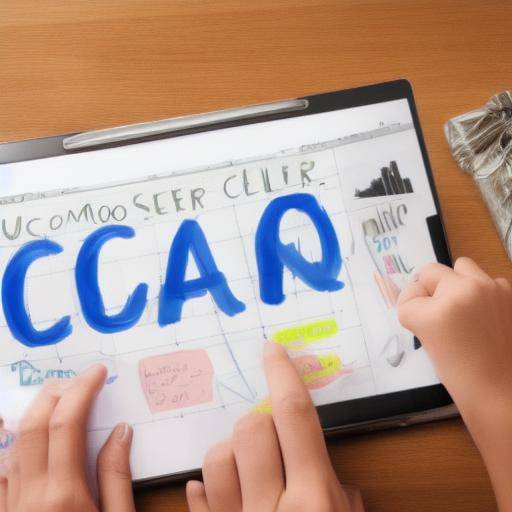
Introduction
In seeking to achieve our goals and maintain a positive attitude in life, personal motivation plays a crucial role. Self-affirmation, understood as the act of reaffirming our capabilities, values and beliefs, is a powerful tool that significantly influences our motivation. In this article, we will thoroughly explore the impact of self-affirmation on personal motivation, offering detailed analysis, practical advice and future predictions. Join us on this journey to self-discovery and personal empowerment.
History and Background
Self-affirmation as a psychological concept has its roots in the theory of self-evaluation of the 1980s, developed by Claude Steele and Steven Spencer. This theory postulates that people seek to maintain a positive perception of themselves, and when they face potential threats to their self-esteem, they resort to self-affirmation strategies to restore their emotional balance.
Over the years, self-affirmation has evolved from a purely psychological concept to a tool widely used in the field of personal development. It has become a fundamental pillar in building self-confidence and intrinsic motivation of people, significantly influencing their emotional well-being and ability to face challenges with determination.
During this evolutionary process, various strategies and techniques of self-affirmation have been identified that have proved effective in promoting personal motivation and emotional growth. These strategies have become essential components of personal development and self-help programmes, demonstrating their relevance in the search for integral well-being.
Deep analysis
In reviewing self-affirmation in the context of personal motivation, it is crucial to understand its benefits and challenges. Self-affirmation not only strengthens self-esteem and self-confidence, but also provides people with the ability to overcome obstacles and maintain a positive attitude towards challenges.
Various studies show that regular self-affirmation practice can lead to an increase in in intrinsic motivation, which in turn drives people to persevere in achieving their goals. This positive effect on personal motivation results in a greater commitment to tasks and a more resilient disposition to failure.
However, self-affirmation is not without challenges. Some people may experience difficulties in effectively practicing self-affirmation, especially in situations of high stress or insecurity. In such cases, it is essential to have a set of specific strategies to overcome barriers that hinder self-affirmation and therefore personal motivation.
Comprehensive review
In the context of personal development, self-assertion stands out as a versatile tool that can be applied in various areas of life. From improving self-image to strengthening emotional resilience, self-affirmation plays a key role in fostering a positive and proactive mentality.
The integration of self-affirmation with other personal development practices, such as creative visualization or the establishment of specific goals, further enhances their impact on personal motivation. This strategic combination allows people to develop a holistic approach to achieving their goals, maximizing their potential and overcoming self-imposed constraints.
In exploring best practices in the use of self-affirmation to enhance personal motivation, it is essential to take into account the different perspectives and approaches that exist in the field of personal development. The diversity of ideas and approaches offers people the opportunity to find the self-affirmation strategy that best suits their individual needs, thus maximizing their effectiveness and results.
Comparative analysis
In the context of personal motivation, self-affirmation and personal development are inherently interconnected concepts. While personal motivation drives internal momentum towards achieving goals, self-assertion acts as a vehicle to strengthen that motivation through the consolidation of self-confidence and overcoming emotional obstacles. On the other hand, personal development encompasses a wider spectrum, integrating self-affirmation as a key tool for emotional growth and continuous improvement.
This interrelationship between personal motivation, self-affirmation and personal development underscores the importance of addressing these elements in a holistic manner. By understanding how they complement and empower each other, people can draw a more effective path to personal achievement and integral well-being.
Practical Tips and Accessible Guidance
In considering the implementation of self-affirmation in the context of personal motivation and personal development, it is crucial to provide practical guidance and actionable advice so that readers can apply these concepts in their daily lives. Some recommendations include:
- Practice daily affirmations: Give time to reflect on your strengths, achievements and goals, reinforcing your self-image positively.
- Challenge self-critical thoughts: Identify and question negative or self-critical thoughts, replacing them with positive and realistic affirmations.
- Show success: Use creative visualization to imagine your goals achieved, strengthening your intrinsic motivation and focus on success.
- Establish attainable goals: Defining realistic and attainable goals gives you a sense of purpose and direction, facilitating self-affirmation and personal motivation.
- Find emotional support: Build a support network that promotes mutual self-affirmation and provides an environment of understanding and encouragement.
These practical advices are based on the strategic integration of self-affirmation into everyday life, thus enhancing personal motivation and personal development.
Industry Perspectives and Expert Reviews
To gain a broader view of the impact of self-affirmation on personal motivation, it is essential to analyse the perspectives of leaders and experts in the field of personal development and psychology. Expert opinions can provide valuable information on current trends, emerging challenges and latest research in self-affirmation and personal motivation.
According to the expert psychologist in personal development, María López, "Self-affirmation is an essential component in building a positive and resilient mentality, which directly influences the intrinsic motivation of people." This perspective underlines the importance of self-affirmation as a key driver of personal motivation and emotional well-being.
In addition, the well-known life coach, Carlos Ruiz, emphasizes that "Integrating self-affirmation in daily personal development practices can catalyse a significant change in self-perception and willingness to overcome challenges." These opinions highlight the transformative impact of self-affirmation in the personal motivation process and individual growth.
Case Studies and Practical Applications
The case study analysis provides a concrete perspective on how self-affirmation influences personal motivation in real situations. Through practical cases and specific applications, readers can more effectively understand how self-affirmation can boost motivated behavior and personal overcoming.
An outstanding case study is that of Ana, a professional who experienced a significant decline in her labor motivation due to internal and external challenges. By implementing self-affirmation strategies, Ana managed to regain confidence in her abilities, which boosted her commitment to her work and her ability to face labour challenges.
In addition, the practical application of self-affirmation in educational environments has proven to promote student motivation and academic performance, thus offering a clear example of how self-affirmation can influence different areas of life.
Future Trends and Predictions
As awareness of the importance of self-affirmation in personal motivation continues to grow, emerging trends are seen that promise to transform the way people address their personal development and their pursuit of goals. These trends include:
- Integration of self-affirmation in working environments: Organizations are recognizing the value of promoting self-affirmation among their partners to boost motivation, productivity and well-being.
- Development of specialized applications and platforms: New digital tools are expected to emerge specifically designed to provide support in the practice of self-affirmation, providing users with wider access to effective strategies.
- Focus on self-affirmation in education: The inclusion of self-affirmation methods in educational programs and school curricula promises to foster a culture of self-confidence and motivation among students.
These future trends point to greater recognition of self-affirmation as a fundamental tool to enhance personal motivation in various contexts.
Conclusion
In short, the impact of self-affirmation on personal motivation is undeniably significant. From its historical evolution to its practical application in the present world, self-affirmation has proven to be a powerful catalyst to promote intrinsic motivation, self-confidence and personal growth. By understanding the interconnection between self-affirmation, personal motivation and personal development, people can undertake a journey of self-discovery that allows them to achieve their goals with determination and positivism.
As a society, it is vital to foster an environment that values self-affirmation as an essential tool for emotional well-being and integral development. In doing so, we can create a world in which every individual feels capable to pursue their dreams and achieve their maximum potential.
Continue to explore the infinite possibilities that self-affirmation offers, and make it your ally on the journey to a full and motivated life!
Frequently asked questions
How can I effectively practice self-affirmation in my daily life?
Effective self-assertion practice involves identifying and positively reinforcing your values, skills and achievements. You can write positive statements, practice creative visualization, and look for environments that foster a healthy self-image.
What is the difference between personal motivation and self-affirmation?
Personal motivation refers to the internal momentum that guides us towards achieving goals, while self-affirmation is the act of reaffirming our capacities, values and beliefs to strengthen that internal motivation.
Is there a specific time of the day to practice self-affirmation?
There is no definite moment, but many find it useful to practice self-affirmation in the morning to foster a positive mental state during the day. However, the practice of self-affirmation can adapt to your individual needs and preferences.
How can I overcome insecurity and use self-affirmation as an empowerment tool?
Identify your strengths, set realistic goals and surround yourself with an environment that fosters self-affirmation can help you overcome insecurity and use self-affirmation as a tool of personal empowerment.
Is self-affirmation only for specific situations or can it be applied generally in my life?
Self-affirmation can be generally applied in your life. By incorporating it as a regular practice, you can strengthen your self-confidence and self-esteem in multiple areas, from the workplace to personal relationships.
Is self-affirmation equal to arrogance or vanity?
No, self-affirmation should not be confused with arrogance or vanity. While arrogance implies an excessive overvaluation of oneself, self-assertion focuses on building a positive self-image based on real strengths and achievements.
These frequent questions offer a detailed insight into the practice of self-affirmation and its impact on personal motivation, providing guidance for those who wish to incorporate this powerful resource into their lives.
In conclusion, self-affirmation is a transformative tool that significantly influences personal motivation and integral development. By understanding their history, benefits and practical applications, people can empower themselves to embrace their potential and face challenges with strength and determination. Continue to explore the infinite possibilities that self-affirmation offers, and make it your ally on the journey to a full and motivated life!






















































